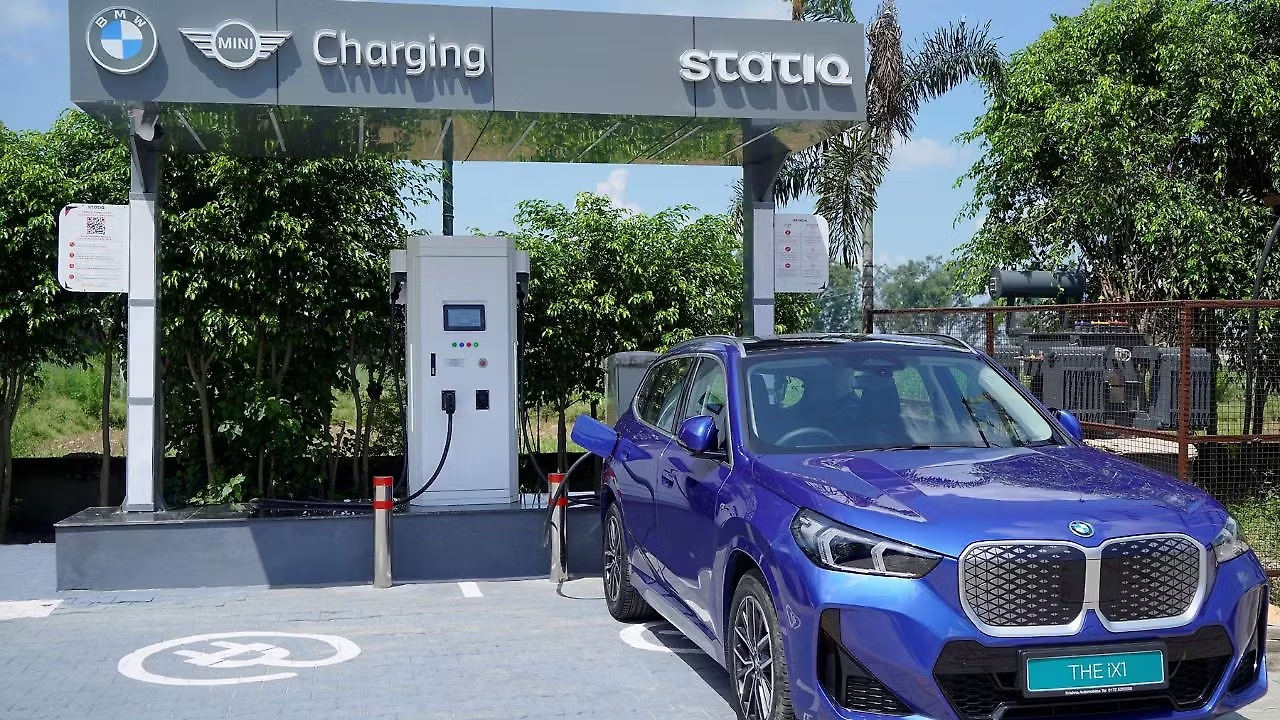Now Reading: BMW India Crosses 5,000 EV Deliveries and Unveils 4,000 km Charging Corridor
-
01
BMW India Crosses 5,000 EV Deliveries and Unveils 4,000 km Charging Corridor
BMW India Crosses 5,000 EV Deliveries and Unveils 4,000 km Charging Corridor

BMW Group India has reached a notable milestone by delivering over 5,000 electric vehicles, becoming the first luxury carmaker in India to do so. To mark the achievement, the company has launched a 4,000 km high-power charging corridor stretching from Delhi to Madurai. Available to all EV makers, this corridor is aimed at easing long-distance travel and pushing the electric mobility mission forward.
BMW’s charging network spans major cities including Delhi, Jaipur, Ahmedabad, Mumbai, Pune, Hubballi, Bengaluru, Coimbatore, and Madurai, with chargers placed every 300 km. The high-power units offer speeds from 120 kW up to 720 kW. The route links highways and public hubs—cafes, eateries, and rest areas—making pit stops convenient and efficient for EV users. All drivers, no matter their EV brand, can plug in, with details accessible via BMW’s digital tools like the myBMW app. This includes live charger status, capacity filters, and nearby amenities, backed by partner operators such as Statiq and Zeon.
For people in Tier-2 cities—say, Indore, Kochi, or Vadodara—this isn’t just a tech upgrade, it’s a sign of changing times. EVs have often felt out of reach for those outside metro corridors. But a usable charging logistics system across the country could shift that. It means weekend road trips in an electric car are more realistic, not just for urban families, but emerging EV buyers from smaller towns who need to travel longer distances without anxiety.
BMW’s earlier foothold—300 destination chargers at hotels, resorts, and malls—already offered some local convenience. Now, with more than 6,000 charging points accessible through its public partnerships, the infrastructure is starting to fill in the gaps. The move blends long-distance assurance with local support, allowing EV users to rely on both familiarity and frontier access.
All this is happening amid broader efforts to grow EV adoption in India. Luxury buyers may now be confidently making the switch, and their choices could ripple out to mainstream segments. At the same time, charging infrastructure remains a key barrier. With BMW taking the lead in building it, momentum could shift from hesitation to acceleration.
In the end, BMW’s milestone matters beyond headline numbers. It’s about practical progress—making the idea of owning and using an EV across India feel less experimental and more everyday. As charging corridors stretch further and cities beyond the metros join in, electric driving may become less about novelty, and more about normalcy.

























